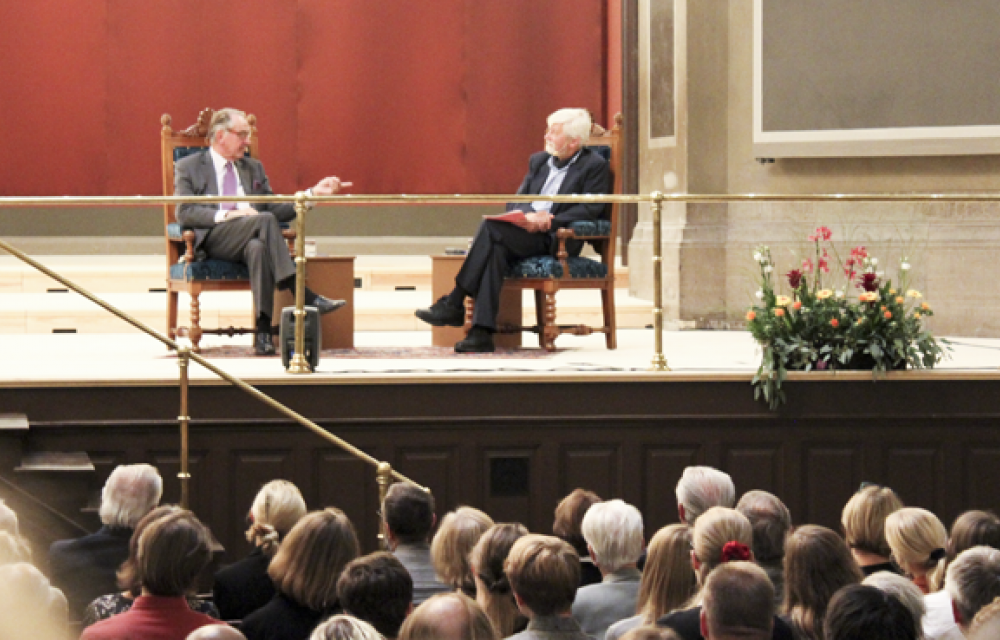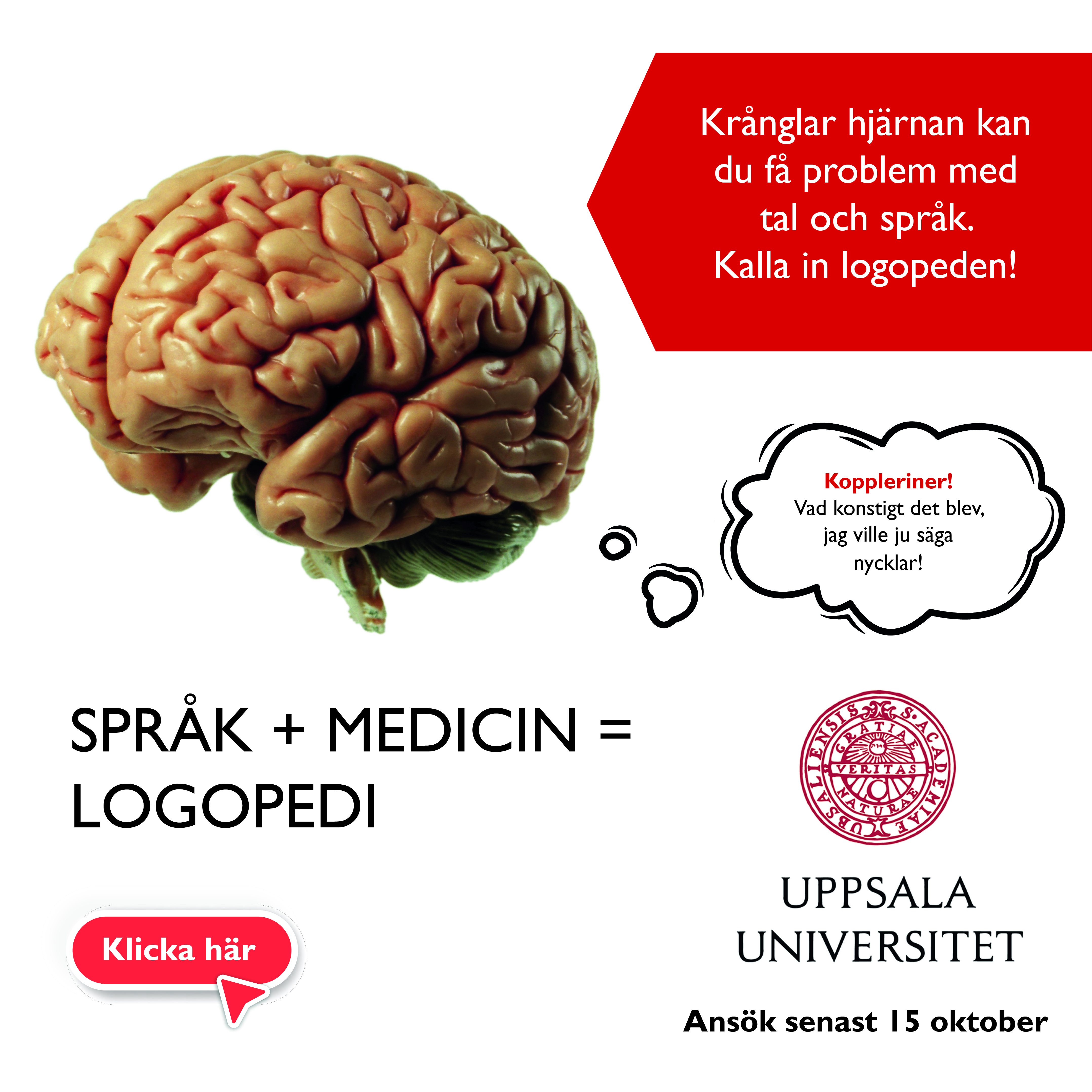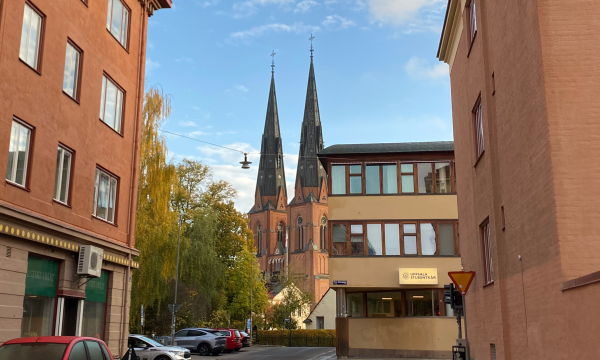
Human Rights Filled the Grand Auditorium to the Brim
When Jan Eliasson enters the stage of the Grand Auditorium in the University Main Building nbsp; a buzzing and crowded room awaits his every word.
This is not the first time Eliasson visits Uppsala University. He happens to be an Honorary Doctor of the University and the last time he was here, in 2011, he gave a lecture in memory of Swedish diplomat Dag Hammarskjöld. This time he is visiting as part of the Martin H:son Holmdahl lectures. The theme of his speech this time is “Human Rights in a Time of Global Insecurity” and he begins with the declaration that we are living in challenging times, but he also promises the audience to end on a positive note.
His main point of the day is to prove the indispensable connection between peace, development and human rights. These three elements of our society are mutually reinforcing each other.
– There is no peace without development, no development without peace and none of the aforementioned elements without basic human rights.
He goes on to point out that the line between what is national and what is international is getting blurrier each day. Every issue that we face today has an international dimension. Simply putting your own nation first is not enough.
– A good international solution for these issues is a national interest. But good work at home is also a contribution to peace. By making your own country better, you also contribute to international peace and security, he says.
Eliasson mentions how he can see that divisions are becoming stronger and more dramatic between different ethnic groups today. There has been an emotional element added here that has made mediation more difficult. Many leaders today divide people to win points. He also mentions the enormous number of refugees and migrants in our world today. Over 300 million people are living under very unstable conditions. Another negative trend is that the factor of fear has grown since 2001. People are worried.
– Let us remember that those acts are acts of provocation that intends to reduce the beauty of democracy, and we must not fall into that trap, he says.
At this point in his speech he reminds the audience that since he intended to end on a positive note, he would also like to point out a few positive trends that he sees in the world today. The increase of knowledge, science and technology is one of them. Another one is the growing empowerment of women. He is certain that full empowerment will happen and that it will be great news for the world. He exemplifies by pointing out that the majority of university graduates today are women. He also brings up young people as a factor of hope, and leaves us with a memorable quote.
– We must ask not only what can we do for young people, but ask also what we can do with young people.
The Martin H:son Holmdahl Lectures are arranged by Uppsala University and The Swedish Association of International Affairs (UF Uppsala).
















